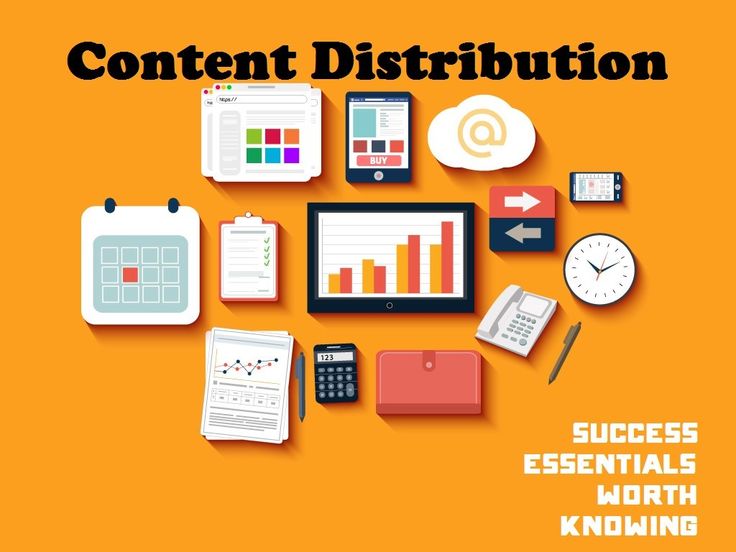Introduction To Email Marketing:
In the bustling landscape of contemporary commerce, marked by the omnipresence of digital interactions, email marketing emerges as a stalwart strategy for businesses aiming to forge meaningful connections with their audience. In this era where attention spans are fleeting and the competition for consumer engagement is fierce, email marketing stands as a beacon of reliability and effectiveness. It serves as a direct line of communication between businesses and their target demographics, offering a platform for tailored messages, exclusive promotions, and compelling content to land directly in the inboxes of recipients. Unlike other digital marketing avenues that contend with algorithmic uncertainties or fleeting social media trends, email marketing provides a consistent and dependable means of engagement, fostering long-term relationships with customers. Introduction To Email Marketing.
As the bedrock of digital marketing initiatives, email campaigns empower businesses to curate personalized experiences for their audience, catering to their unique preferences and interests. Through segmentation and targeted messaging, companies can deliver content that resonates with individual recipients, enhancing brand loyalty and driving conversions. Moreover, the measurable nature of email marketing facilitates meticulous analysis of campaign performance, enabling businesses to refine their strategies based on real-time data insights. In essence, amidst the ever-evolving landscape of digital marketing tactics, email marketing remains a steadfast pillar, offering businesses a reliable pathway to connect, engage, and cultivate lasting relationships with their audience. Introduction To Email Marketing.
What is Email Marketing?
Email marketing entails the distribution of promotional messages to a targeted audience via email. These messages could be newsletters, promotional offers, product updates, or any other content aimed at engaging subscribers and nurturing leads. Unlike social media or other marketing channels, email marketing provides a direct line of communication between businesses and their audience. Introduction To Email Marketing.
Why Email Marketing Matters?
Cost-efficient: In contrast to conventional marketing approaches, email marketing proves highly economical. With minimal investment, businesses can reach a large number of subscribers, making it an ideal choice for startups and small businesses. Introduction To Email Marketing.
Targeted Communication:
Email marketing has emerged as a powerful tool for businesses to finely tune their communication strategies by segmenting their audience along multiple dimensions. By dividing their recipients based on factors like demographics, past behavior, or purchase history, businesses can tailor their messages with surgical precision. This level of segmentation transforms generic email blasts into personalized interactions, resonating more deeply with individual recipients and significantly boosting the chances of conversion. Whether it’s crafting specialized offers for loyal customers or sending targeted recommendations based on past interactions, segmentation empowers businesses to speak directly to the specific needs and preferences of each segment within their audience. Introduction To Email Marketing.
Furthermore, the beauty of email marketing lies in its ability to evolve alongside the recipient’s journey. As customers engage with emails and interact with the brand, their behavior provides valuable insights that can inform future segmentation strategies. By continuously refining and adapting their approach based on recipient engagement metrics, businesses can ensure that their email campaigns remain relevant and effective. In essence, segmentation not only enhances the personalization and effectiveness of email marketing but also fosters a dynamic feedback loop that drives ongoing optimization and improvement. Introduction To Email Marketing.
High ROI:
In the realm of digital marketing, few strategies rival the consistent and impressive return on investment offered by email marketing. Studies and industry data consistently highlight its remarkable performance, revealing that for every dollar allocated to email campaigns, businesses reap an average return of $42. This extraordinary ROI underscores the enduring effectiveness of email marketing as a formidable tool in driving conversions and revenue generation. Whether it’s through targeted promotions, personalized messaging, or strategic nurturing of customer relationships, email campaigns have demonstrated a remarkable ability to deliver tangible results that directly impact the bottom line. Introduction To Email Marketing.
The key to email marketing’s exceptional ROI lies in its unique blend of cost-effectiveness and direct engagement. Unlike other forms of digital advertising that may require significant financial investment for uncertain returns, email marketing offers a reliable and efficient channel for reaching and resonating with audiences. By leveraging the power of automation, segmentation, and personalized content, businesses can maximize the impact of their email campaigns while minimizing costs, resulting in a compelling ROI that continues to position email marketing as a cornerstone of digital marketing strategies. Introduction To Email Marketing.
Measurable Results:
In contrast to the opaque nature of traditional marketing approaches, email marketing offers businesses a wealth of detailed analytics and insights to gauge the effectiveness of their campaigns. Through sophisticated tracking mechanisms, companies can monitor key metrics such as open rates, click-through rates, and conversion rates with precision. This granular level of data empowers businesses to understand exactly how recipients are engaging with their emails, enabling them to make informed decisions and adjustments to optimize future campaigns. By dissecting these metrics, businesses can identify patterns, trends, and areas for improvement, honing their strategies to achieve better results and maximize the return on their marketing investment. Introduction To Email Marketing.
Furthermore, the real-time nature of email marketing analytics provides businesses with a dynamic feedback loop that facilitates continuous improvement. Armed with up-to-date information on campaign performance, businesses can swiftly pivot their strategies, refine their messaging, and experiment with different approaches to better resonate with their audience. This agility not only ensures that email campaigns remain relevant and effective in a rapidly evolving digital landscape but also fosters a culture of innovation and responsiveness within marketing teams. Ultimately, by leveraging the rich insights offered by email marketing analytics, businesses can navigate the complexities of the digital realm with confidence, driving sustained success and growth. Introduction To Email Marketing.
Builds Customer Relationships:
Beyond its role as a promotional tool, email marketing serves as a vital conduit for businesses to cultivate enduring relationships with their customer base. Rather than merely inundating recipients with sales pitches, savvy businesses recognize the importance of delivering value and personalized experiences through their email campaigns. By curating content that educates, entertains, or solves problems for recipients, businesses can establish themselves as trusted allies in the inbox, fostering a sense of connection and loyalty over time. Whether it’s through informative newsletters, exclusive offers, or tailored recommendations, email marketing provides a platform for businesses to engage with customers in meaningful ways that extend beyond transactional interactions. Introduction To Email Marketing.
Moreover, email marketing’s ability to deliver personalized experiences amplifies its potential as a relationship-building tool. By leveraging customer data and segmentation strategies, businesses can tailor their messaging to resonate with the unique preferences and interests of individual recipients. This personal touch not only enhances the relevance and impact of email communications but also demonstrates a genuine understanding of each customer’s needs. Through consistent efforts to deliver value and personalized interactions, businesses can forge deep-seated connections with their audience, laying the foundation for long-term loyalty and advocacy. Ultimately, email marketing emerges not just as a promotional channel but as a cornerstone of relationship-driven marketing strategies aimed at nurturing leads and cultivating lasting customer relationships. Introduction To Email Marketing.
Key Components of Email Marketing:
Email List Building: Building a quality email list is essential for a successful email marketing campaign. Businesses can collect email addresses through website sign-up forms, social media campaigns, or offline events.
Email Design: Crafting visually appealing emails is paramount in captivating the attention of recipients. A well-designed email not only enhances aesthetic appeal but also ensures optimal display across various devices, especially considering the prevalence of mobile usage. Incorporating eye-catching graphics, balanced layouts, and clear typography can significantly enhance the visual impact of emails, drawing recipients into the content. Moreover, strategically placed calls-to-action (CTAs) guide recipients towards desired actions, whether it’s making a purchase, signing up for a newsletter, or engaging with content, thereby maximizing the effectiveness of email campaigns. By prioritizing design elements that are both aesthetically pleasing and functionally efficient, businesses can elevate the impact of their email marketing efforts and improve overall engagement and conversion rates. Introduction To Email Marketing.
Content Creation: In the world of email marketing, content holds unparalleled importance.It serves as the cornerstone of effective communication, holding the power to engage, educate, and persuade recipients. Whether disseminating informative articles, announcing product updates, or unveiling exclusive offers, the content must resonate with subscribers by being relevant, valuable, and tailored to their interests. By delivering content that addresses the specific needs and preferences of their audience, businesses can foster stronger connections, inspire trust, and ultimately drive desired actions. In essence, prioritizing high-quality, targeted content is not just a best practice but a fundamental strategy for success in email marketing campaigns. Introduction To Email Marketing.
Automation: Harnessing the power of email marketing automation empowers businesses to deliver timely and personalized messages to subscribers, driven by their actions or behavior. This strategic automation not only streamlines operations and saves valuable time but also enhances efficiency by enabling businesses to engage with their audience consistently. By automating routine tasks such as welcome emails, follow-ups, or personalized recommendations, businesses can focus their resources on other critical aspects while maintaining a steady flow of communication with their audience. Ultimately, email marketing automation serves as a cornerstone in cultivating meaningful relationships with subscribers, ensuring that every interaction is relevant, timely, and tailored to their individual needs and preferences. Introduction To Email Marketing.
Testing and Optimization: Consistently testing and optimizing email marketing campaigns is paramount in enhancing their efficacy. Through rigorous experimentation with variables such as subject lines, content formats, and sending times, businesses can gain valuable insights into what resonates most effectively with their audience. This iterative process of testing allows businesses to refine their strategies based on empirical data, ultimately improving engagement rates, click-through rates, and overall campaign performance. By embracing a culture of continuous improvement and adaptation, businesses can stay ahead of the curve in the dynamic landscape of email marketing, ensuring that their messages are always compelling, relevant, and impactful to their audience. Introduction To Email Marketing.

In summary, email marketing stands as a stalwart among digital marketing strategies, offering a multitude of benefits for businesses across the spectrum of sizes and industries. Its cost-effectiveness, coupled with the ability to deliver targeted and personalized communication, makes it a cornerstone of modern marketing tactics. Moreover, the impressive return on investment (ROI) it consistently delivers underscores its efficacy in driving engagement and conversions. By leveraging the power of email marketing, businesses can forge deeper connections with their audience, fostering loyalty and trust over time. Thus, for those seeking to enhance their digital marketing endeavors, overlooking the potential of email marketing would be a missed opportunity. By initiating efforts to grow their email lists and crafting compelling campaigns, businesses can tap into the vast potential of email marketing to achieve their marketing objectives and thrive in the competitive digital landscape. Introduction To Email Marketing.
In essence, the enduring relevance and effectiveness of email marketing make it an indispensable tool in the marketer’s arsenal. Its ability to deliver personalized messages directly to the inbox of recipients allows businesses to cut through the noise of digital clutter and establish meaningful connections with their audience. Whether aiming to drive sales, nurture leads, or build brand awareness, email marketing offers a versatile and powerful platform for achieving diverse marketing goals. Thus, embracing email marketing as a central component of digital marketing strategies can empower businesses to navigate the ever-evolving landscape of online marketing with confidence and success. Introduction To Email Marketing.




